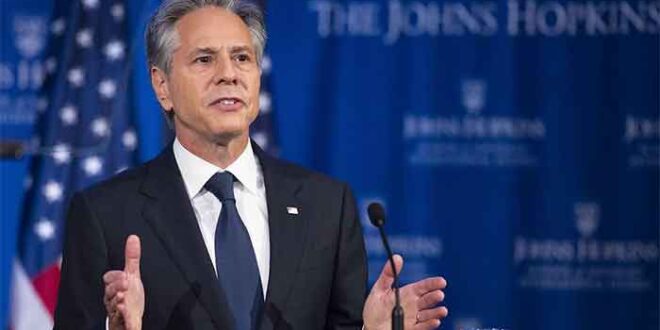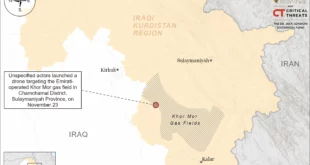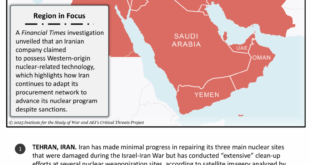U.S. Secretary of State Antony Blinken has claimed that the world is transitioning to a new diplomatic order in which U.S. must lead the way in overcoming increasing threats from Russia and China by working with its allies to build trust among nations for whom the old system failed.
The Old World Is Over
“One era is ending, a new one is beginning, and the decisions that we take now will shape the future for decades to come,” Blinken said on Wednesday in a speech at John Hopkins University in Washington. He said the “post-Cold War order” ended as “decades of relative geopolitical stability have given way to an intensifying competition with authoritarian powers.”
Namely, those powers are led by Russia and China, Blinken said, adding that “Russia’s war of aggression in Ukraine is the most immediate, the most acute threat to the international order.” China poses the biggest long-term challenge, he claimed, because it aspires to reshape the international order and is developing the economic, diplomatic, military and technological power to do so.
“Beijing and Moscow are working together to make the world safe for autocracy through their ‘no limits’ partnership,” Blinken argued.
The U.S Secretary of State claimed that Russia and China have framed the existing order as a “Western imposition,” but that system is anchored in universal values and enshrined in international law. Ironically, he also accused the two rivals of believing that big countries can “dictate their choices to others,” a charge that is increasingly made against the U.S.
“When the Beijings and Moscows of the world try to rewrite – or rip down – the pillars of the multilateral system, when they falsely claim that the order exists merely to advance the interests of the West at the expense of the rest, a growing global chorus of nations and people will stand up to say, ‘No, the system you are trying to change is our system. It serves our interests,” Blinken claimed.
U.S. Will Lead From A Position Of Strength
Blinken suggested that the U.S. will lead “from a position of strength” largely because of its “humility.” He added, “We know we will have to earn the trust of a number of countries and citizens for whom the old order failed to deliver on many of its promises.”
Alliances will be key to Washington’s success, Blinken said. He claimed that just a few years after the capabilities and relevance of NATO were openly questioned, the Western military block has become “bigger, stronger, more united than ever.”
The Russia-Ukraine conflict proved that “an attack on the international order anywhere will hurt people everywhere,” Blinken said. He added that the U.S. aims to ensure that Ukraine defeats Russia and emerges from the conflict as a “vibrant and prosperous democracy.”
BRICS Aiming For Just, Multipolar World Order, Says Lavrov
An earlier media report said:
Attempts by the “collective West” to preserve its hegemony have had the opposite effect, encouraging the real “world majority” to dismiss and reject the exploitation of their resources by foreign states, Russian Foreign Minister Sergey Lavrov has argued.
Tectonic Shifts
“Tectonic shifts are taking place in the world today. We are witnessing the emergence of a more just multipolar world order,” Lavrov wrote in an article for South Africa’s Ubuntu magazine ahead of the BRICS Summit in Johannesburg.
Lavrov called BRICS a “symbol of true multipolarity” for many like-minded countries, which serves as a “positive force that can strengthen the solidarity of the Global South and Global East and become one of the pillars of a new, more just polycentric world order.”
Tired Of Blackmail
“The international community is tired of the blackmail and pressure from the Western elites and their colonial and racist manners,” Lavrov wrote. “That is why, for example, not only Russia, but also a number of other countries are consistently reducing their dependence on the U.S. dollar, switching to alternative payment systems and national currency settlements.”
Russia has “consistently stood for strengthening the African continent in a multipolar world order,” according to Lavrov, who promised that Moscow “will further support our African friends in their aspirations to play an increasingly significant role in resolving the key problems of our time.”
According to Lavrov, the BRICS partnership is gaining momentum, offering many creative initiatives aimed at ensuring food and energy security, healthy growth of the global economy and conflict resolution – although the group does not aim to replace existing international mechanisms, much less to become a new “collective hegemon.”
“That is why we launched this expansion process,” he noted. “It is symbolic that it has gained such momentum in the year of South Africa’s Chairmanship, a country that has joined BRICS as a result of a consensus-based political decision.”
Originally consisting of Brazil, Russia, India and China, BRICS has only expanded once, when it added South Africa in 2010, without any prior conditions.
BRICS members account for some 40% of the world population and, according to experts’ forecasts cited by Lavorv, in 2023 the “Big Five” will account for about 31.5% of global GDP (at purchasing power parity), while the share of the G7 will fall to 30%.
China “On The Right Side Of History,” Says Xi
Another earlier media report said:
China will continue to pursue an independent foreign policy while building a shared future for mankind, President Xi Jinping has said. He further insisted that Beijing is standing “on the right side of history.”
In an address prepared for the BRICS Business Forum in South Africa, Xi stated that “hegemonism is not in China’s DNA; nor does China have any motivation to engage in major-power competition.”
However, the Chinese president did not personally attend the BRICS Business Forum held on the same day, and his speech was read out by Beijing’s commerce minister, Wang Wentao.
Xi also insisted that China will remain committed to a peaceful and independent foreign policy, with the aim of “building a community with a shared future for mankind.” He added that “our door is wide open to anyone who wants to engage in cooperation with us.”
“China stands firmly on the right side of history, and believes that a just cause should be pursued for the common good,” the speech proclaimed.
Prosperity For All
Prosperity and development must be promoted for all members of the international community, “but some country, obsessed with maintaining its hegemony, has gone out of its way to cripple the EMDCs (emerging markets and developing countries),” Xi claimed, in apparent reference to the US.
He argued that any attempts to contain developing countries would be “futile,” and that “the collective rise of EMDCs represented by BRICS is fundamentally changing the global landscape.”
Xi also noted that EMDCs have contributed up to 80% of global growth in the past 20 years.
Moscow Is Against Any Hegemony, Says Putin
A media report said:
Russian President Vladimir Putin, who addressed the BRICS summit via video link on Wednesday, also said that Russia is “against any hegemony, and the notion of exceptionalism promoted by some nations, and the policy of neocolonialism derived from that claim.”
According to the Russian leader, the goal of BRICS members is “the formation of a multipolar world order, truly just and based on international law.”
Ukraine Crisis Caused By Western Attempts To Preserve Hegemony
Attempts by the West to maintain its hegemony are the main cause of the conflict in Ukraine, Russian President Vladimir Putin has claimed. He added that members of the BRICS group of nations unanimously reject the idea of exceptionalism.
Explaining the origins of the Ukraine crisis, Putin accused Western powers of facilitating the “anti-constitutional coup” in Kiev in 2014. After seizing power, the new Ukrainian authorities “unleashed a war” against those who rejected them, Putin said.
“Our actions in Ukraine have but one motive: to put an end to this war that the West and its satellites in Ukraine started against the people living in Donbass,” the Russian President stressed.
He conveyed Moscow’s gratitude to BRICS members, which he said are working to resolve the situation “in a fair way through peaceful means.”
Russia deployed troops against Ukraine in February 2022, stating that its goals were to stop Kiev’s attacks on Donbass, ensure Ukrainian military neutrality, and eliminate radical nationalist forces. The U.S. and its allies have claimed that Moscow’s military action was “unprovoked,” and have pledged to arm and fund Kiev for “as long as it takes” to defeat Russia.
NATO Expansion
Moscow has identified NATO’s expansion in Eastern Europe and particularly its increasing influence in Ukraine as a major threat to Russian national security. In 2021, the Russian government sought to negotiate with the West to address those concerns, but its efforts were rejected.
 Eurasia Press & News
Eurasia Press & News



